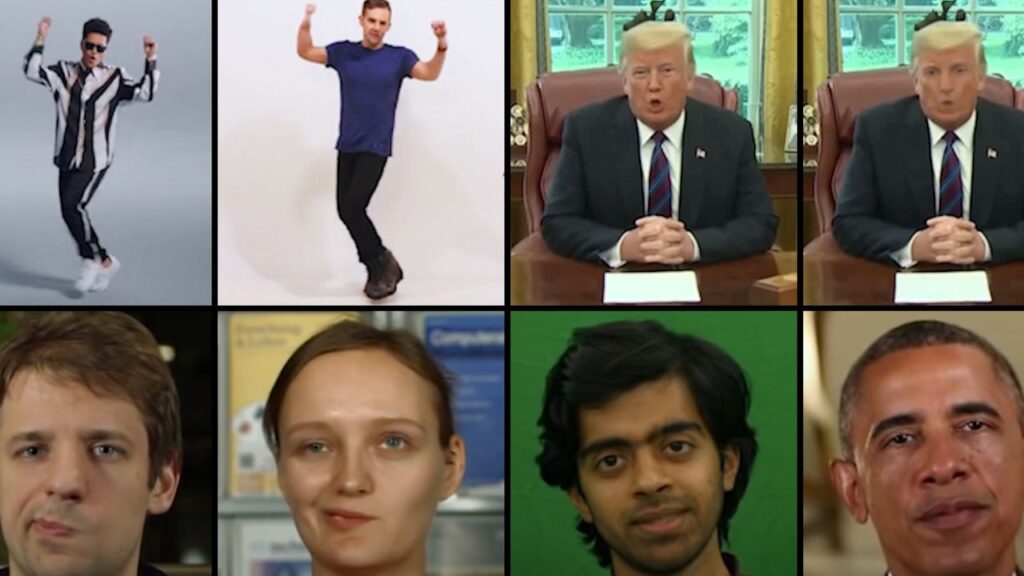In 2024, society stands at the crossroads of innovation and information, where the manipulation of digital content and the sanctity of democracy converge. Deepfakes, the byproduct of advanced artificial intelligence, are poised to disrupt the very pillars of modern civilization. This blog post will explore the labyrinthine challenges present to our news media and, perhaps most alarmingly, our global electoral processes and Deepfaking Democracy.
Table of Contents
The Rise of Deepfakes

Evolving from Novelty to Threat
Deepfakes, a term coined by combining “deep learning” and “fake” not so long ago, was at the fringes of the internet—novelties in which celebrities’ faces were swapped into adult films, or politicians were made to deliver improbable speeches.
However, the technology has evolved rapidly, now capable of creating audio and video material that is strikingly realistic, indistinguishable from authentic content to the untrained eye or ear.
Creating a Deepfake: The Art of Synthesis
At its core, creating a deepfake involves a complex process of training a machine-learning model on vast datasets of images and audio clips. This model then synthesizes original content by blending and altering these primary sources.
The result can convincingly mimic a person’s mannerisms, expressions, and voice, giving rise to events that never occurred or statements that were never spoken.
The Many Faces and Voices of Deception

Deepfakes exist on a spectrum of capabilities, from those crafted with significant time and resources, such as political smear campaigns, to the AI “shallow” fakes quickly and easily spread across social media. As this technology proliferates, the entry barrier for creating such content lowers, enabling a more comprehensive and arguably more dangerous distribution of misleading material.
Impact on News Integrity
The Dissemination of Deceit
The most immediate and concerning impact of deepfakes on news is the potential to deceive. Deepfakes can be used to fabricate events, statements, and endorsements. This bears significant implications for the spread of misinformation, which can influence political and social narratives on a global scale.
Undermining the Fourth Estate
Journalism, long regarded as the “Fourth Estate” due to its critical role in democracy, faces a profound challenge. The institutions tasked with informing the public and holding figures of power to account are now vulnerable to being bypassed by synthetic news pieces that erode trust in established media sources.
Challenges for Global Elections (Deepfaking Democracy)
Manipulating Public Opinion
In the high-stakes game of politics, public opinion is currency. Deepfakes armed with false endorsements or incendiary content have the power to sway mass sentiment in favour of one candidate or party, distorting the political playing field to an unprecedented degree.
The Influence on Electoral Outcomes
The potential for deepfakes to impact electoral outcomes is a nightmare scenario for any democratic system. With the ability to turn the tides of public opinion through deceit and deception, the question is not whether deep fakes will affect elections but when and to what extent.
A Precarious Balancing Act
The aftermath of a tainted electoral process could lead to social unrest and a broader erosion of trust in democratic institutions. The delicate balance of democracy relies on the perception of fairness, which deepfakes have the power to subvert with startling ease.
Addressing the Threat
The Role of Technology in Detection
Efforts to stem the tide of deepfakes currently lean on technological advancements in AI, with dedicated algorithms developed to detect and attribute synthetic media. However, as detection methods evolve, so do the deepfakes in an arms race that newsrooms and technology companies are yet to win definitively.
Collaborative Approaches and Policy
Beyond technology, a holistic response to the deepfake crisis requires the concerted effort of governments, civil society, and the private sector. Policymaking must walk the tightrope of restricting harmful content without infringing on free speech, a balance that is notoriously challenging to strike.
Media Education and Citizen Vigilance
In an increasingly digital society, media literacy has become an essential tool. Educated populations can better discern fabricated content, reducing the effectiveness of deepfakes. Vigilance on the part of the public to consume content critically and fact-check sources before amplification is a critical shield against the spread of deceptive material.
Conclusion Deepfaking Democracy
The development and potential misuse of deepfakes serve as an urgent call to action for all stakeholders invested in the integrity of democracy and the pursuit of truth. As the world hurtles towards the 2024 election cycle and beyond, the need for robust defences against AI-enhanced deception has never been more pressing. Only through a collective effort can we safeguard our news and electoral processes, ensuring that the authenticity and integrity of our shared reality remain unbastardized by the machinations of artificial intelligence.
FAQs about Deepfaking Democracy
What Are Deepfakes?
Deepfakes are hyper-realistic digital fabrications where a person’s likeness, including their voice and facial expressions, can be manipulated to create fictitious video and audio recordings.
How Are Deepfakes Created?
Deepfakes are created using machine learning techniques, particularly those in the category of deep learning, to synthesize human images and voices by analyzing and imitating authentic data inputs.
Why Are Deepfakes a Threat to Elections?
Deepfakes can undermine electoral integrity by spreading disinformation and manipulating public opinion, which can sway election outcomes and erode trust in democratic processes.
Can Deepfakes Be Detected?
Yes, there are evolving technologies and algorithms designed to detect deepfakes, but detection becomes increasingly challenging as the technology behind deepfakes advances.
What Can I Do to Protect Myself Against Deepfakes?
Be sceptical of sensational or unlikely news, verify stories through multiple reputable sources, and use fact-checking services. Enhancing personal media literacy is also crucial in recognizing and defending against deepfakes.
Resources:
- Deepfake democracy: Here’s how modern elections could be decided by fake news | World Economic Forum (weforum.org)
- Danielle Citron: How deepfakes undermine truth and threaten democracy | TED Talk
- Deepfaking Democracy: Why AI Threatens News And Global Elections In 2024 (forbes.com)
- Deepfaking Democracy: Why AI Threatens News And Global Elections In 2024 – video Dailymotion


